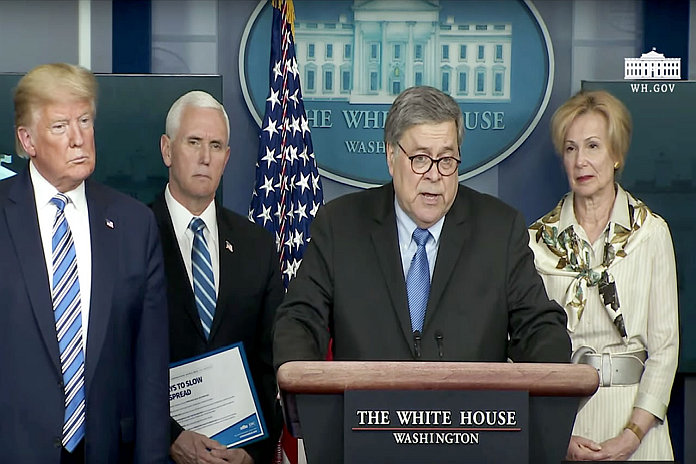SPRINGFIELD, Illinois – US Attorney John C. Milhiser and Special Agent in Charge of the IRS-Criminal Investigation Chicago Field Office, Kathy A. Enstrom, are reminding the public to beware of possible scams related to economic impact payments made during the COVID-19 pandemic and continuing efforts to defraud the public.
Not only is there fraud related to the economic impact payments, but also, the Department of Justice is working in a cooperative effort with a number of private-sector companies, including internet domain providers and registrars. The effort has already disrupted hundreds of fraudulent websites that use domain names that include “covid19” or “coronavirus” to attract traffic to the fake site. In some cases, the fake sites purport to be run by or affiliated with public health organizations or agencies.
To date, the Department’s cooperative effort has disrupted:
- An illicit website pretending to solicit and collect donations to the American Red Cross for COVID-19 relief efforts.
- Fraudulent websites that spoofed government programs and organizations to trick American citizens into entering personally identifiable information, including banking details.
- Websites of legitimate companies and services that were used to facilitate the distribution or control of malicious software.
“The public must remain alert and vigilant to the unscrupulous methods scammers use,” stated US attorney John C. Milhiser. “The US attorney’s office will continue to collaborate with federal, state and local law enforcement and private sector partners to combat online COVID-19 related crime. We are not only learning to navigate the health uncertainties of this pandemic, but also economic hardships that are exploited in these evolving online threats.”
“In today’s economic environment and unprecedented challenges with the COVID-19 crisis, it is more important than ever that the American people know that IRS-CI is on their side,” said Special Agent in Charge Kathy A. Enstrom, IRS Criminal Investigation Chicago Field Office. “Rest assured, IRS-CI and the Department of Justice will uncover, investigate, and prosecute allegations of fraud committed by fraudsters who seek to profit from and deceive the American taxpayer. The IRS will use all its investigative tools to actively pursue those who prey upon individuals to dismantle these types of illicit scams and bring the criminals to justice.”
The following tips can help protect individuals and businesses from being victimized by cyber scammers.
- Check the websites and email addresses offering information, products, or services related to COVID-19. Be aware that scammers often employ addresses that differ only slightly from those belonging to the entities they are impersonating. For example, they might use “cdc.com” or “cdc.org” instead of “cdc.gov.”
- Be wary of unsolicited emails offering information, supplies, or treatment for COVID-19 or requesting your personal information for medical purposes. Legitimate health authorities will not contact the public this way.
- Do not click on links or open email attachments from unknown or unverified sources. Doing so could download a virus onto your computer or device.
- Make sure the anti-malware and anti-virus software on your computer is operating and up to date. Keep your operating system up to date as well.
- Ignore offers for a COVID-19 vaccine, cure, or treatment. Remember, if a vaccine becomes available, you will not hear about it for the first time through an email, online ad, or unsolicited sales pitch.
- Check online reviews of any company offering COVID-19 products or supplies. Avoid companies whose customers have complained about not receiving items.
- Research any charities or crowdfunding sites soliciting donations in connection with COVID-19 before giving any donation. Remember, an organization may not be legitimate even if it uses words like “CDC” or “government” in its name or has reputable looking seals or logos on its materials. For online resources on donating wisely, visit the Federal Trade Commission (FTC) website.
- Be wary of any business, charity, or individual requesting payments or donations in cash, by wire transfer, gift card, or through the mail. Do not send money through any of these channels.
- The IRS will not call and ask you to verify your payment details. Do not give out your bank account, debit account, or PayPal account information – even if someone claims it’s necessary to get your check. It is not; it’s a scam.
- Be on the look-out for bogus checks. If you receive a “check” for an odd amount (especially one with cents), or a check that requires that you verify the check online or by calling a number, it’s a fraud
If you think you are a victim of a fraud or attempted fraud involving COVID-19, call the National Center for Disaster Fraud Hotline at 1-866-720-5721 or email at disaster@leo.gov.






